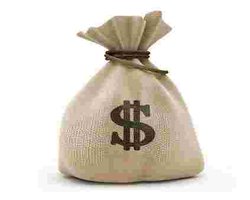Money is one of the few things people do not take for granted when they have more of it.
Money addiction is a compound phenomenon – the more money we have, the more of it we seem to want, Stanford GSB Professor Jeffrey Pfeffer and colleagues reported in the journal ILRReview.
How highly we value money affects our lives in countless ways, from the house we chose to live in, the kind of job we decide to have, to how much time we spend working or on leisure activities.
Professor Pfeffer says his study – “When does Money Make More Money” – may shed more light on why money can have a progressively addictive effect on people, and how such addiction is driving up CEO’s compensation packages.
Pfeffer did the study along with Sanford E. DeVoe and Byron Y. Lee. It was inspired by a quote from Novartis’ CEO, Daniel Vasella, who turned down a $78 million severance package in February 2013 after a public outcry regarding fat cat golden handshakes.
Vasella had said in an interview with Fortune magazine “The strange part is, the more I made, the more I got preoccupied with money. When suddenly I didn’t have to think about money as much, I found myself starting to think increasingly about it.”
Pfeffer says that money earned through hard work is much more important to us than money earned through investments or winning the lottery. The more we are paid for our work, the more important that money becomes, he added.
The team was triggered into deeper thinking regarding the effect money has on people when Pfeffer saw Vasella’s quote again. Money does not only fulfill real and important needs, including buying clothing, shelter and food, “it also signals worth and competence.”
Overall, people believe how much they are paid reflects how much their employer values them. “It occurred to us that it was quite possible money operated differently than other things we acquire, and that the more money you had, the more important it became.”
Is money addiction tied to rising income?
The researchers set out to test their theory by examining how rising incomes affected how much importance people placed on money over time.
They gathered and analyzed data from the British Household Panel Survey, a longitudinal study from 1991 to 2009 that asked people questions about money, such as how important “having a lot of money” was on a scale of 1 to 10.
The team matched people’s answers with how much they earned per hour. They also tried to determine whether other sources of income, such as investments, savings, rent, etc. might also have an impact on how people perceive money.
The study clearly showed that those with higher hourly incomes placed more importance on money than employees with lower incomes. This was not the case among people with high incomes from other sources.
In another study, seventy-one Canadian university students were taught how to make origami paper airplanes. They were given five minutes to make as many as possible. They were then individually evaluated for their performance and given a “very good” rating on both quantity and quality. They then received an envelope that either contained $1 or $10. Some of the students were told the money was awarded at random, while others were told it reflected their work.
After the experiment the students were asked how much they valued money. Those who received the money randomly had very similar ratings for the importance of money. However, participants who had been told the money given to them reflected the quality of their work rated money differently, the ones who received $10 rated money much more highly than the others.
In a third study, forty-one students were also taught to make paper airplanes and asked to make some. They were then paid $10. Some were told the payments were awarded randomly while others were led to believe the money was based on the quantity and quality of their planes.
The participants who believed they were being paid according to quality and quantity of work subsequently made many more planes than those who thought the money was being awarded randomly.
Money coming from work is more important to us
The authors said that all three studies demonstrated that money that comes from the work we do makes that money more important to us.
Pfeffer said:
“The money in that case is a signal of competence and worth, and that makes it addictive, because the more you have, the more you want. No one wants to be paid below the median because everybody thinks they are above average.”
“There’s a compensation rat race going on, but the centerpiece of the story is that the more money people get, the more salient that money becomes.”
The team say there is no current prescription for ending money addiction. However, if society really wants to put an end to fat cat golden handshakes “We would do what we have done with other addictive substances – tax it. That’s what public policy has done in the past to restrict the use of legal drugs like alcohol and nicotine – we tax them,” says Pfeffer.
Taxing very large compensation packages more heavily would discourage payouts and “might slow the compensation rat race,” the authors suggest.
The findings of the study have implications for most types of compensation. Because companies typically reward good worker performance with money, that money “becomes equivalent to the love of the organization.
Companies should try to find other ways to signal competence and worthiness to their employees,” Pfeffer explains, such as helping them find meaning and purpose in the work itself, rather than the financial reward.

